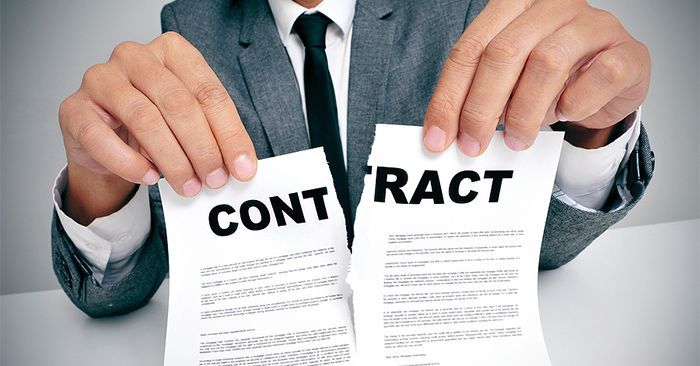Nine Steps to Turn Your Home into a Rental Property

source: Aparments.com / Jamia Kenan (author)
Many first-time landlords begin their careers in the real estate industry by transforming their homes into rental property. Perhaps you’re looking for an avenue to build wealth or you’re moving but not quite ready to let go of your abode. Whatever the reason, it’s important to know that there are some things you need to do before converting your primary residence into a rental property. Here are some steps to help you turn your home into a rental.
1. Weigh the Pros and Cons
Turning your home into a rental property is a big commitment. Realistically evaluate if owning rental property is something you can handle at the moment. Here are a few advantages and disadvantages to renting out your house.
Pros
- Owning rental property is a great way to build wealth and diversify or supplement your income
- The income you receive can help pay down your mortgage while also providing extra cash flow
- If your home has been on the market for a long time and you haven’t received an offer that allows you to break even, you can postpone selling the house
- Renting is a great option if you inherited a property, but don’t want to sell it or live there
- You could qualify for some tax deductions if you turn your home into a rental
Cons
- If you decide to manage the rental yourself, it can be very time consuming
- You’ll have to handle rental property expenses including real estate attorney fees, routine maintenance, landlord’s insurance, and more
- Since markets fluctuate, your rental property might produce less rental income than expected
- There are some risks like theft and vandalism if your rental stays vacant for too long
2. Consider Waiting If You Have a Mortgage
If you have a mortgage on your home, you generally need to live in the house for at least 12 months before converting the property into a rental. Read the contract for your loan and/or reach out to your lender to determine the waiting rules that apply to your loan. You don’t want to be accused of mortgage fraud, so it’s important to find out what rules are in place.
If you say you’ll live in the home but are actually purchasing it as an investment property, it’s considered mortgage fraud. If a lender discovers a property owner has committed fraud, they could call the loan in which will likely lead to foreclosure. Once you’ve lived in the house for the required timeframe for your mortgage, you can begin turning your primary residence into a rental property.
Although you might be eager to own rental property, owning a primary residence and converting it later has its advantages. Generally, homeowners can have a smaller down payment and lower interest rate when the mortgage loan is for a primary residence while rates for an investment property or vacation home might be higher.
3. Find Out Whether You Can Get Another Mortgage
If you’re moving out of your primary home and want to buy another one to live in, you need to find out if you’ll qualify for another mortgage before renting out your house. The bank could consider the rental income the property will generate for your new loan, but that’s not always the case. Call your mortgage lender and begin the conversation before moving forward.
4. Check with Your Homeowners Association
If your neighborhood is governed by a homeowners association, there might be some restrictions for renting your house out. Some HOAs don’t have any restrictions while others prohibit renting out houses completely. Some HOAs only allow a percentage or a certain number of homes in the neighborhood to be used as rentals. For example, if the HOA only allows eight houses to be rented out, you might be placed on a waiting list until a slot opens. Some neighborhoods will allow owners to rent out their house if the homeowners are experiencing financial hardship even if the community has reached its limit. You should also find out who is responsible for paying HOA fees each month. Since you agreed to follow HOA rules when you purchased the house, it’s important to revisit them to prevent being fined.
5. Change Your Homeowners Insurance Policy
Insurance policies for primary homes are very different than policies for rental properties, so it’s important to switch to a landlord’s policy. If you file a claim with your primary insurance after you convert to a rental, the insurer could deny your claim, causing you to pay out of pocket. Landlord insurance will not only protect you from damage made to the rental property such as a tree falling on the house, but it will also cover legal costs or medical bills if you’re found liable for your tenant’s injuries. Reach out to your insurance company as soon as you decide that you want to begin renting out your home.
6. Learn About Tax Changes
It’s recommended to consult an accountant to prepare for your rental property, but there are some basics you should know as a landlord. Your rental income will be taxable, so determine how your tax rate might change. However, once you convert the house to a rental property, you might qualify for tax deductions for rental property expenses including:
- Property taxes
- Mortgage interest
- Repairs and renovations
- HOA fees
- Landlord insurance policy
- Utilities (if you pay for them)
Reach out to your local municipality or tax advisor and ask about the homestead exemption you probably have on your house. You are only allowed to have the homestead exemption on your primary residence, so find out the next steps if you want to convert your home into a rental.
7. Get Your Property Ready
In order to attract renters and set a competitive rent price, you’ll probably need to invest in upgrading your house to increase curb appeal. You don’t have to complete a home makeover all at once. Start by creating a list of the improvements you envision and complete the renovations over time. For example, the rental property might be located in a warm climate so investing in a pool may be worth it, but it’s a luxury amenity that can be put on hold. Low-cost upgrades like adding a fresh coat of paint and some landscaping are a great place to start. Installing a small fountain or mirrors can go a long way as well. Along with renovations, begin making any necessary repairs. Everything in the house should be in working order including appliances, plumbing, and the HVAC system.
8. Secure the Required Permits
It’s common for municipalities to require a permit for residential properties that operate as rentals for safety reasons. These types of permits usually aren’t expensive, but a necessary step in many areas. Typically, an inspector from the local government will inspect the property for any potential health and safety hazards. For example, the inspector might check electrical, heating, and adequate exits. The inspector will give the landlord a report listing any necessary changes or repairs that need to be made before the property is compliant. Permit requirements vary depending on the location, so reach out to your local city hall to find out if you need one.
9. Learn How to Be a Landlord
Once you decide you want to convert your home into a rental property, begin researching how to become a landlord and how to rent out your house. Research how to handle basic landlord tasks like screening tenants, collecting rent, and completing maintenance requests. You’ll also need to learn how to plan for rental property expenses. If you don’t have the time to manage the property yourself or you want some help as a first-time landlord, you’ll probably want to hire a professional property manager.
Similar to having an accountant, consulting with an attorney is recommended, but you should have a general understanding of certain laws. Learn about federal and state landlord-tenant laws, along with fair housing laws. You don’t want to violate a tenant’s rights or discriminate against potential tenants, so familiarizing yourself with these laws is essential. As a novice landlord, you’re bound to make mistakes (we all do), so educating yourself will help avoid negative situations and increase your profit.
Owning rental property can help set you up for financial success but converting your home into a rental and becoming a landlord can be intimidating at first. However, with some patience, research, and communication with the appropriate professionals, it’s certainly doable. Apartments.com Rental Tools can help you manage landlord tasks and our blog is filled with articles to answer any of your questions. Embrace the journey and good luck!
Share this post




